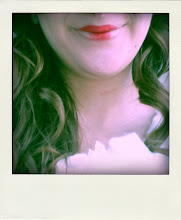An Actor Prepares - Reflection on the Second Half (Final)
>> 20 May, 2010
After continuing with An Actor Prepares by Stanislavski, what other elements can you identify as being central to one's acting skills, and what have you learned from reading An Actor Prepares?
Continuing with An Actor Prepares has really shown me far more elements than I had expected acting would utilize. In addition to those I have previously mentioned in my midterm, I find that the following are just as appropriate for an actor to take note of and practice: Units & objectives, faith & a sense of truth, emotion memory, and communion/ communication.
Just as we have been taught in our Acting 2 class to break down a scene into beats and objectives, Stanislavski states that this is one of the basic staples of understanding a text. "The division of a play into units, to study its structure, has one purpose...There is another, far more important, inner reason. At the heart of every unit lies a creative objective." (110) He states that objectives should be for the actor only, and should help them move the scene along as opposed to distract the audience from what is actually happening within the scene. Stanislavski compiles a list of what an objective should be, stating that "They should be truthful...their function should be to fulfill the main purpose of our art: to create the life of a human sould an render it in artistic form...They must be clear cut...They must tolerate no vagueness...They should be active, to push your role ahead and not let it stagnate." (112) Most importantly, Stanislavski states "You should not try to express the meaning of your objective in terms of a noun...the objective must always employ a verb." (116) He further explains that units and objectives both help the actor understand the text and give meaning, thought, and action to each spoken, and unspoken line.
Perhaps one of the most important elements I've learned is the concept of faith and a sense of truth. This section of the book was focused on making each role and circumstance realistic, as opposed to overtly heightened and theatrical. Stanislavski condemns overacting and mechanical movement for movement's sake. He says "Every physical act, except simply mechanical ones, has an inner source of feeling." (136) He also states "Put life into all the imagined circumstances and actions until you have completely satisfied your sense of truth, and until you have awakened a sense of faith in the reality of your sensations." (122) Above all, you must truly believe and feel the part, and get yourself to have faith in the role and the part.
Another element which I find to be rather interesting is emotion memory. Stanislavski explains emotion memory to be just that; remembering the emotions you felt just as you felt them, and utilizing those circumstances to create that same emotion within you. "Those feelings," he says, "drawn from our actual experience, and transferred to our part, are what give life to the play. You did not give those feelings. All external production is formal, cold, and pointless if it is not motivated from within." (155) Stanislavski, once again, exemplifies how forcing an emotion or movement only hinders the piece, and he also states the same about losing oneself in emotion: "Never lose yourself on the stage. Always act in your own person, as an artist. You can neer get away from yourself. The moment you lose yourself on the stage marks the departure from truly living your part and the beginning of exaggerated false acting." (167) Altogether, he states that emotion memory is a very powerful tool, but you must know how to handle it effectively on the stage.
A final element in acting is communion, or communication, with an actor and the elements around them, such as the play itself, another actor, an object, or other various things. "If actors really mean to hold the attention of a large audience they must make every efort to maintain an uninterrupted exchange of feelings, thoughts, and actions among themselves." (186) Stanislavski writes. He explains how an actor must always be focused on something within the scene, and not lose focus. He states three ways that one can remain in communion with the scene: "1) Direct communication with an object on the stage, and indirect communication with the public. 2) Self-communion. 3)Communication with an absent or imaginary object." (196) He explains how these are all ways of remaining in the scene and not letting one's mind wander to other details, such as what happened during the day, or what the audience is like.
"The audience wishes, above all, to believe everything that happens on the stage." (126) Stanislavski writes. He expertly explains the elements of acting in a relatable and easy to understand fashion, and truly exemplifies his expertise in acting. I have to say that I'm very happy I read An Actor Prepares, because it has taught me so much. I have learned about all the different aspects and elements it takes to act, and how I can control them. For example, I plan on using what I learned from the emotion memory section to better manage the way I portay a character's feelings on the stage as opposed to just letting a string of emotions fly freely or simply force what I think an emotion would be like. In addition, I know I will use the communion section to better stay within the scene and not let myself become distracted by the audience. Of course, these are only small examples, and I could never list out everything I learned from the book, as it would take an excessive amount of text. I found An Actor Prepares to be extremely educational, and I highly reccomend it for any actor who hasn't read it yet.
"Always and forever, when you are on the stage, you must play yourself." (167)





